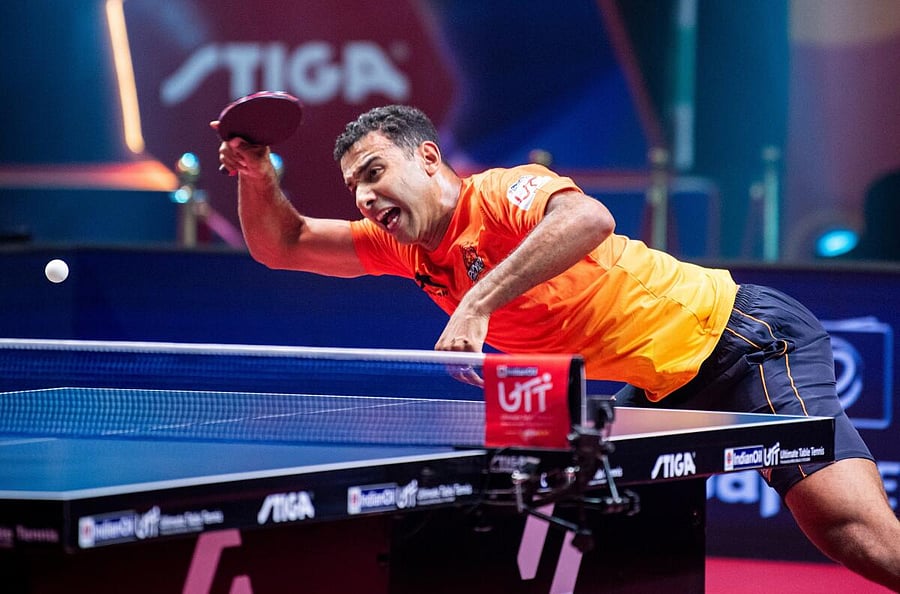
As Omar Assar fell to his knees after becoming only the second African to enter the last-8 stage of the Table Tennis World Championships, a familiar face in the stands waited eagerly to embrace the Egyptian.
Assar’s close friend, colleague, rival and the first from the continent to achieve this feat - Nigeria’s Aruna Quadri - ran down to the court as the crowd in Durban, South Africa cheered the two paddlers who have shouldered the burden of popularising the sport in Africa for over a decade.
“It was a lovely moment. Two African players being applauded by the home crowd at such a big stage felt special,” the 32-year-old Assar told DH.
The two Olympians with multiple world championship appearances over the years were here in India for the Ultimate Table Tennis (UTT) league in Pune. While Quadri was part of the U Mumba squad, Assar played for the Puneri Paltan side.
The similarities of coming from different countries where table tennis is a fairly unknown sport was the binding force connecting the two athletes, said Assar.
“It’s a very unique bond that we share. He is an amazing player and a big fighter on court. He has an inspiring story of starting from a humble background who made it big. I admire him as an athlete and a person,” shared Assar about the 34-year-old Quadri.
“He still has so much to achieve. And both of us have a huge responsibility to carry our continent's flag and also our respective countries’ flags in the sport that hopefully inspires many kids in Africa to take up table tennis.”
The 6’4” paddler might seem like a lone warrior of a lesser-known sport in the homeland of footballer Mo Salah and multiple squash superstars, but a smiling Assar, with his the calm demeanor, has managed to create his own niche which has attracted a growing list of admirers.
Being born in the city of Desouk - north of Alexandria (the second largest city after capital Cairo) - known as a table tennis hub worked in his favour. With schools promoting the sport and academies with a decent coaching set-up, the city has produced several players that gave easy access to Assar’s sporting dreams.
“My father was a big table tennis fan. He worked as a sports manager but also coached as a part-timer. I grew up watching my dad and uncle being so passionate about the sport that it passed on to me and my younger brother naturally,” he recollected.
Once he began climbing up the ladder, Quadri’s presence inspired him to keep pushing boundaries. Representing Egypt at the London 2012, Rio 2016 and Tokyo 2020 Olympics, achieving his best world ranking of 16 and multiple African Championships medals may be the highlights of his career so far. But the current World No. 21 asserted that the responsibility of spreading the game to every corner of his region was the bigger purpose.
For which, Assar hopes leagues like UTT will make an entry to Egypt and other Arab/ African countries. “That will be revolutionary. Beside the entertainment and excitement, there is also a lot of learning that can shape the lives of the future generations in those regions,” felt Assar.
